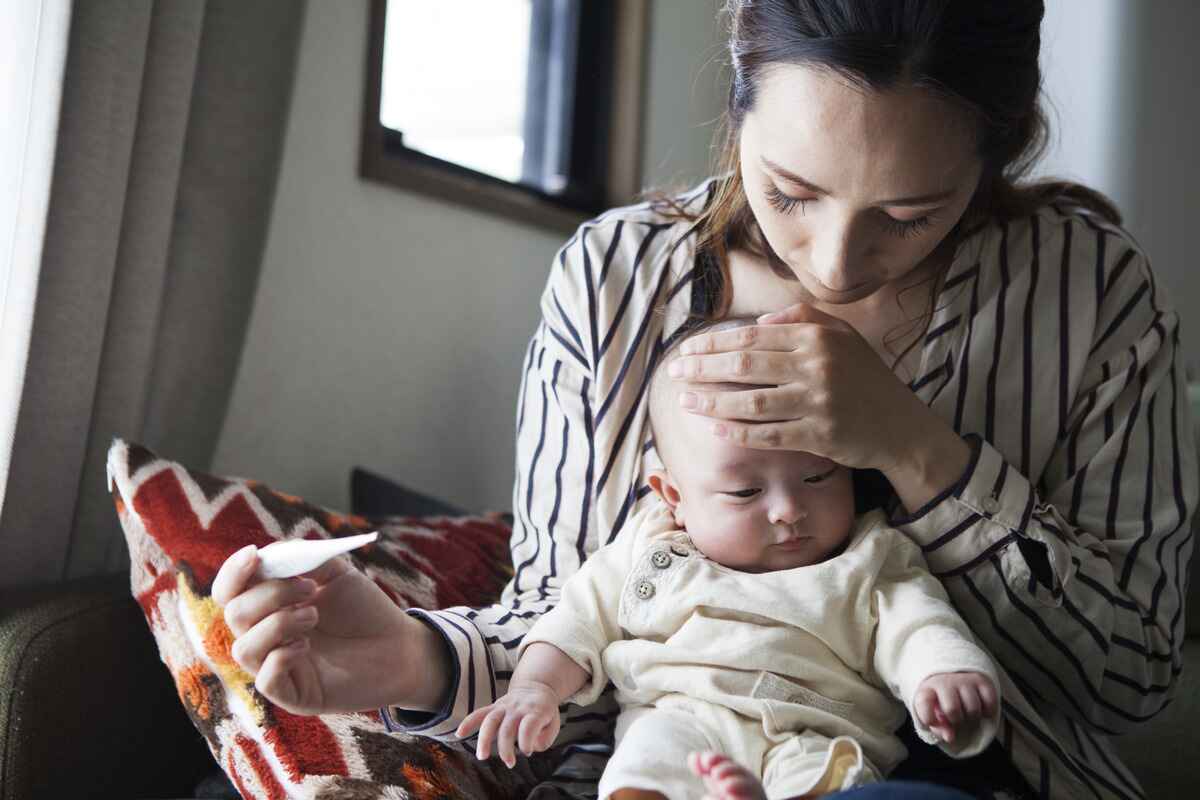
Popular Locations
- Outpatient Surgery - Bridgeport Hospital
- Park Avenue Medical Center
- Primary Care Center - Bridgeport Hospital

Published August 29, 2023

A shot aimed at protecting babies from respiratory syncytial virus, or RSV, could help to prevent a surge of pediatric hospitalizations this winter. Nirsevimab (Beyfortus) is approved for all babies up to 8 months old who are about to enter their first RSV season and for infants between 8 and 19 months who are at high risk of severe infection due to underlying conditions. This includes:
“From November to March we have a lot of patients admitted to the hospital for RSV. A certain portion of those kids end up in the ICU and there is a small number of kids who end up dying every year from the RSV disease,” said Magna Dias, MD, chair of Pediatrics at Bridgeport Hospital, Regional Medical Director for Inpatient Pediatric Services at Yale New Haven Children’s Hospital and professor of Pediatrics at Yale School of Medicine. “Having the ability to protect even our highest risk patients, that’s going to make a big impact.”
Dr. Dias and Thomas Murray, MD, PhD, associate medical director of Infection Prevention at Yale New Haven Children’s Hospital answered some frequently asked questions about RSV and the shot.
Just like with many other respiratory illnesses, RSV is spread by touching contaminated surfaces and then touching the mouth and nose.
“Most kids by the age of two will eventually get RSV,” said Dr. Murray. “But if you get it when you’re a little older, your immune system is more developed, and you tend not to get as sick.”
RSV symptoms include cough, congestion, runny nose and fever. Warning signs that parents should call their pediatrician and seek emergency care include difficulty breathing, blueness around the lips, fever that does not respond to Tylenol or Motrin, very dry lips and tongue and if the baby stops having wet diapers.
In general, most vaccines work by taking a tiny piece of a virus that is not live and injecting it into the body, allowing the immune system to mount a response when exposed to the virus. This shot is different in that it uses antibodies and helps protect patients from RSV for the entire respiratory season. Studies found after the shot, the risk of being hospitalized from RSV was reduced by 80%.
Before the approval of this shot, there was already an RSV antibody available only to high-risk babies. However, it is very expensive and requires monthly injections. This shot only requires a single injection and can help protect a much larger population.
Proper infection prevention measures used to help stop the spread of illnesses like COVID-19 and flu can also help stop the spread of RSV. Kids should frequently wash hands, avoid others who are sick, and parents should try to wipe down shared objects and toys with a disinfectant.
There are currently three shots available for adults 60 and older. Research found getting an RSV shot helped to greatly reduce the risk of developing severe RSV in this population and this shot is a one-time vaccine and not annual.
“RSV is an infection of older adults as well,” said Dr. Murray. “For grandparents spending time with new babies, one of the ways to help prevent spread would be for those grandparents to consider getting the vaccine if they’re eligible, not only for their own health but for the health of any new babies and younger children that they’re going to be around.”
One of the RSV vaccines for adults is called Abrysvo and it was approved by the FDA for those who are between 32 and 36 weeks pregnant. Since RSV is highly contagious, this vaccine aims to reduce the risk of severe illness in both the pregnant patient and newborns during the first months of life.
Studies found a small increased risk of pre-eclampsia, low birth weight and pre-term birth. Anyone who is pregnant who is considering receiving the RSV vaccine should speak with their healthcare provider to discuss potential risks and benefits.
Any vaccine can cause side effects, but in general these are mild and self-limited.
It is important to remember what is being prevented. A mild vaccine side effect is in almost all cases better than getting the actual disease it is trying to prevent. The benefits of vaccination outweigh the risk in almost all circumstances, but if there is concern then it is important to discuss with your doctor.
Not everyone can get every vaccine. Some vaccines are live, weakened viruses so they cannot be given to people with low immune systems or those who are pregnant. The measles mumps rubella (MMR) vaccine is a good example of this.